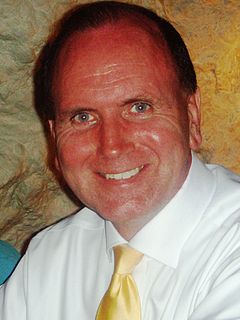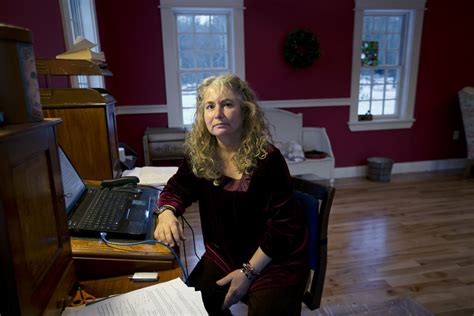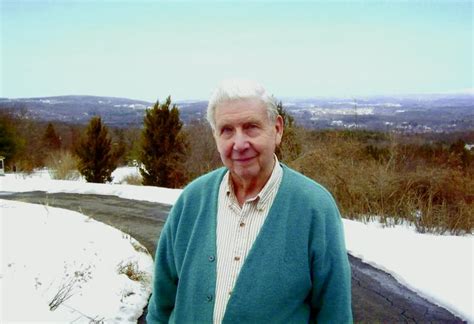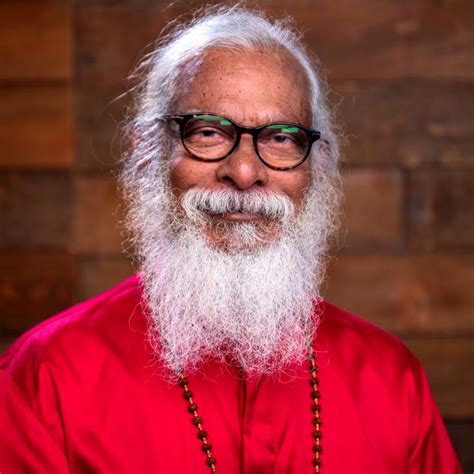A Quote by Marcel Proust
We exist only by virtue of what we possess, we possess only what is really present to us, and many of our memories, our moods, our ideas sail away on a voyage of their own until they are lost to sight! Then we can no longer take them into account in the total which is our personality. But they know of secret paths by which to return to us.
Related Quotes
I find very reasonable the Celtic belief that the souls of our dearly departed are trapped in some inferior being, in an animal, aplant, an inanimate object, indeed lost to us until the day, which for some never arrives, when we find that we pass near the tree, or come to possess the object which is their prison. Then they quiver, call us, and as soon as we have recognized them, the spell is broken. Freed by us, they have vanquished death and return to live with us.
Many of us have a tendency to forget the Gracious Hand which has preserved our nation, enriched it, strengthened it. Many of us imagine in the foolishness of pride, that our manifold blessings are due not to God's goodness, but to our own wisdom and virtue. Too many of us have been so drunk with self-sufficiency as no longer to feel the need of prayer.
Let us, then, take our compass; we are something, and we are not everything. The nature of our existence hides from us the knowledge of first beginnings which are born of the nothing; and the littleness of our being conceals from us the sight of the infinite. Our intellect holds the same position in the world of thought as our body occupies in the expanse of nature.
One of the problems we have is that we cannot just be content to admire and enjoy, we have to possess and feel we own what we see. That can become for many of us an addiction which adds a complication to our life and takes away our peace of mind. Craving things becomes after a while a serious distraction and an obsession.
We, unaccustomed to courage exiles from delight live coiled in shells of loneliness until love leaves its high holy temple and comes into our sight to liberate us into life. Love arrives and in its train come ecstasies old memories of pleasure ancient histories of pain. Yet if we are bold, love strikes away the chains of fear from our souls. We are weaned from our timidity In the flush of love's light we dare be brave And suddenly we see that love costs all we are and will ever be. Yet it is only love which sets us free.
We depend on our surroundings obliquely to embody the moods and ideas we respect and then to remind us of them. We look to our buildings to hold us, like a kind of psychological mould, to a helpful vision of ourselves. We arrange around us material forms which communicate to us what we need — but are at constant risk of forgetting what we need — within. We turn to wallpaper, benches, paintings and streets to staunch the disappearance of our true selves.
Things in which we do not take joy are either a burden upon our minds to be got rid of at any cost; or they are useful, and therefore in temporary and partial relation to us, becoming burdensome when their utility is lost; or they are like wandering vagabonds, loitering for a moment on the outskirts of our recognition, and then passing on. A thing is only completely our own when it is a thing of joy to us.
Bold ideas, unjustified anticipations, and speculative thought, are our only means for interpreting nature: our only organon, our only instrument, for grasping her. And we must hazard them to win our prize. Those among us who are unwilling to expose their ideas to the hazard of refutation do not take part in the scientific game.
We pretend with a spiritual life we don't live, a peace we don't experience and a holiness and commitment we don't possess. ... We will never make any progress in becoming more like Jesus unless we permit God to cut us open, search our hearts, try us, know our thoughts and then change us from the inside. Only then can we become real according to the Word of God.






































